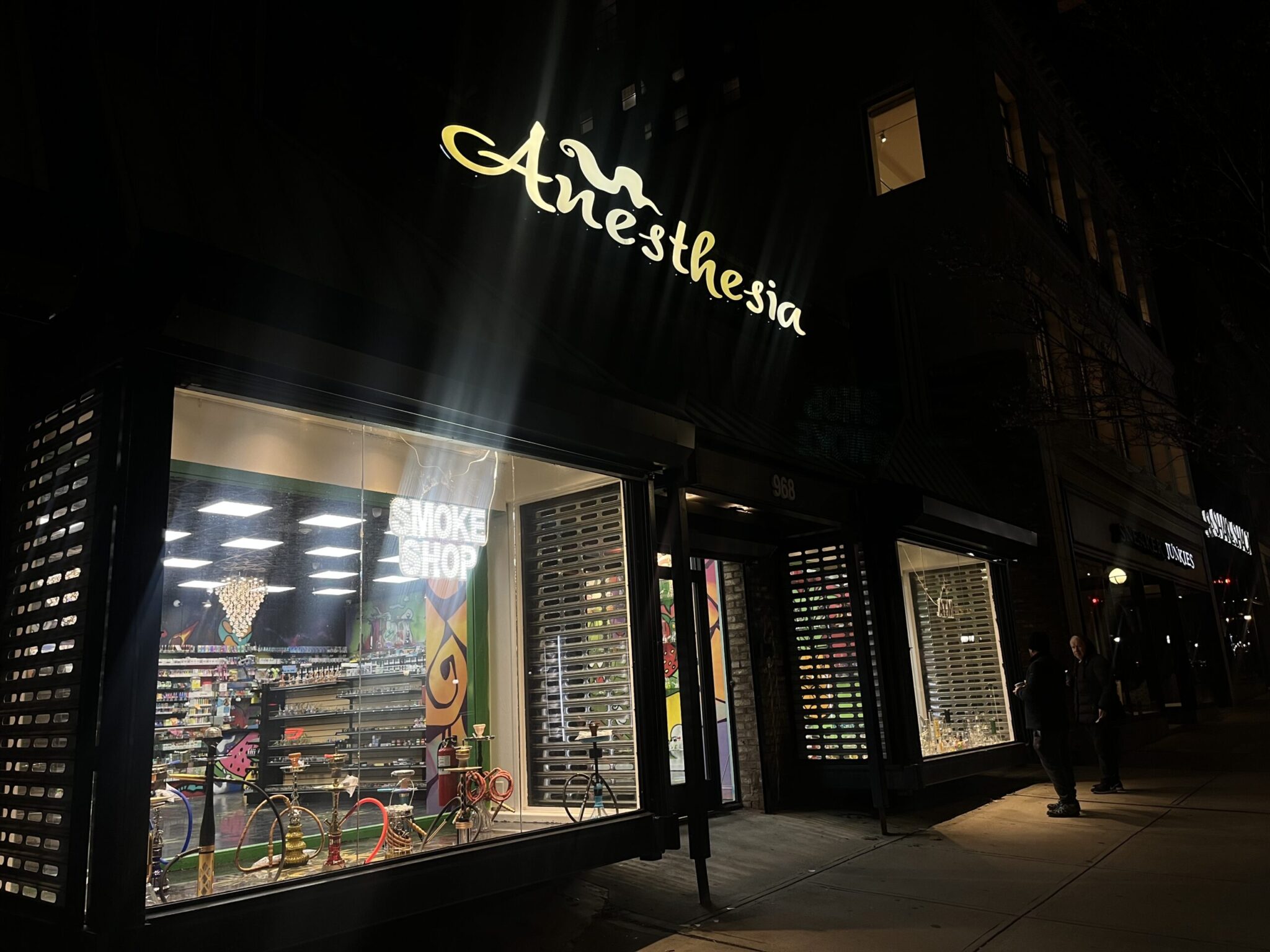Anesthesia Smoke Shop facing lawsuit for allegedly selling cannabis products illegally
Connecticut Attorney General William Tong sued three cannabis wholesalers and four retailers, including Chapel Street's Anesthesia Smoke Shop, for selling cannabis products without a license. The News spoke to three patrons who identified themselves as underage buyers.

Nati Tesfaye, Contributing Photographer
Anesthesia Smoke Shop is facing legal action for allegedly illegally selling cannabis products, including to underage customers.
The smoke shop, which opened in 2022 at 986 Chapel St. and is not licensed to sell cannabis products, failed multiple undercover visits by state officials. On Jan. 9, Connecticut Attorney General William Tong brought a lawsuit against Anesthesia, three other cannabis retailers and three wholesalers for failing to comply with Connecticut’s Unfair Trade Practices Act.
“On multiple unannounced visits, investigators from the Department of Consumer Protection and Office of the Attorney General observed thousands of high-THC products, including those more potent than any product available in the regulated cannabis market,” a state press release read. “Products included potent edibles, as well as marijuana flower.”
In addition to illegal distribution, the lawsuit alleges that Anesthesia sold products that lacked labels and state-mandated warnings.
Bryan T. Cafferelli, the commissioner of the Department of Consumer Protection, explained the dangers that come with unlabeled products and the harm it can cause to underage buyers.
“Many of these products are packaged in a way that is misleading – signaling to consumers that the product inside is safe when it is not – and, most shamefully, are often sold to people who are underage and may not realize the effects of what they are consuming,” Caffereli wrote in a press release. “Adults who choose to consume cannabis should shop in the regulated market and keep their products out of sight and out of reach from children and teens.”
Anesthesia Smoke Shop declined to comment on the allegations in the lawsuit.
Three underage patrons told the News they were able to buy cannabis and other THC products from the shop dating back to transactions from 2022. The legal age to buy cannabis products in Connecticut is 21.
The New Haven Police Department and the New Haven office of the Drug Enforcement Administration did not respond to requests to comment.
“I would say it was easier to buy from them freshman year. They got a little more strict with IDs at the beginning of sophomore year,” a Yale College sophomore — who requested anonymity because of their age — told the News. “I don’t know if it was because I was a regular, but they stopped checking my ID after the first few times. They definitely sold to minors. Freshman year they only asked for my age and didn’t cross-check with my ID.”
An anonymous first-year student said that there were no cannabis products visible when they first entered the store, but that when they asked a worker for edibles, they were able to purchase without issue.
According to patrons, all cannabis products were stored behind the counter or in the back areas of the smoke shop.
“I asked the person at the desk if they sold edibles and she went behind the counter and got stuff. It was 10 gummies of 10 milligrams [THC],” the anonymous first year said. “I paid in cash. They were stronger. They were definitely stronger than other 10 milligram edibles I had had before and they hit faster as well.”
Another anonymous sophomore described Anesthesia’s lax vetting measures, which allowed them to buy cannabis despite them being 19, two years below the legal age requirement.
According to the source, the smoke shop also had patrons buy cannabis with cash instead of debit or credit cards.
“I’ve never been asked for my ID. The only questioning I’ve experienced is if I’m paying with cash,” the anonymous sophomore said. “I believe once you’ve made it in the door, you have access to buy whatever you want no matter the age.”
Violations of the Connecticut Unfair Trade Practices Act can result in fines of up to $5,000 per infraction.
In 2024, Connecticut secured judgments against four additional Connecticut cannabis retailers and imposed fines totaling $40,000 for alleged violations of the Connecticut Unfair Trade Practices Act, stemming from the sale of delta-8 THC products.
“We have multiple active investigations into additional retailers and wholesalers, and we will keep the heat on so long as these dangerous, illegal products are sold,” Tong said in the press release.
The Connecticut Unfair Trade Practices Act was adopted in 1973.







